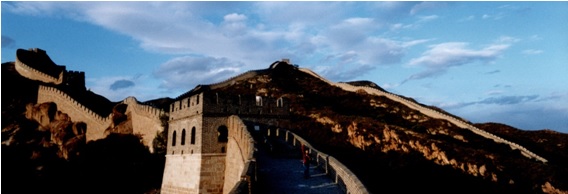|
|
||

|
|
Episode 5: Master Teacher - Training Knows No Betrayal As I continued to practice, several questions arose in my mind and I began to think strongly, "I want to ask someone...! " It was one Sunday that I had these thoughts in my mind. Unusually, a young disciple visited the dojo. Even to an amateur like myself, his moves looked dead-on. His movements were sharp, and his posture and form were well-defined, indicating the depth of his training. The stoic atmosphere that oozed out of him made me, a newcomer and younger than him, hesitant to talk to him. However, a desire to resolve my questions pushed me to ask him, so I hesitantly approached him. I was surprised to find that he answered my questions politely softening his countenance. --- In fact, he was one of the assistant instructors of this dojo. Since my first question, he has guided me on a wide range of topics such as his interpretation of forms, as well as on other questions that occurred to me. Learning forms from the old master was fascinating and mysterious, but when the young instructor added his explanations, my understanding of the meaning of the techniques, how to use the body, and how to exert force was deepened. It seemed to make the attraction of Tai Chi Chuan shine brighter, and it remained in my body not only as fun but also as joy. I once assumed that the old master was teaching him in detail because he was an assistant instructor, but he taught only by showing the movements three times like he did to me. From there, he continued to devise, research, and deepen his understanding of the forms. He took hints from his teacher's movement and grasped the key points on his own. I believe I was greatly influenced by him, including his attitude toward learning. --- Anyway, his movements were truly outstanding. Perhaps he had some natural qualities, but the more I knew about him, the more I realized that he was a man of hard work. He not only practiced at the dojo, but also had his own training routine. Influenced by his attitude toward the martial arts, I adopted his training methods one after another. When I heard that he strengthened the spring of his lower limbs by jumping over guardrails from side to side every day, I immediately imitated him and jumped up and down. I also decided to do everything I thought was necessary and began to practice independently outside the dojo. I would run on a 2-meter high fence, dash through the crowded streets of Shinjuku dodging people and so on. While he was giving me his close guidance, I had a chance to visit his house near the dojo. He showed me his unique practice of swinging a wooden sword there. His practice method included devices for developing latent strength (*1) of martial arts, and the effect was obvious in his body, techniques, and movements. The evidence of this was clearly engraved on the tatami mats with his deep footprints clearly visible there Seeing this, I could not help feeling deeply impressed. I saw a definite proof that the sharpness of his wonderful technique was achieved through diligent training. At the same time, the image of him practicing alone and silently day in and day out came to my mind and I was reminded of the fact that a genius is composed of 1% of the qualities and 99% of the effort. --- He spared no effort in everything. He pursued his ideals in routine, pushing hands, and sparring, and he practiced them with research and ingenuity. He was uncompromisingly strict in everything he did. The Tai Chi Chuan that I learned from the old master had a slightly elevated posture and was not physically difficult, but his coaching was more demanding. You would have to sit deep on your back of thighs until your thighs were nearly parallel to the ground and would straighten your posture to an upright position without sticking out your bottom. Just maintaining that posture is hard enough, but you had to perform the entire routine, which consisted of nearly 100 movements, from start to finish. It was so hard that my thighs would start shaking after just a few moves, and my thighs would be soaked in sweat after a full routine. I would never be able to do it now. I remember with nostalgia that I was young and passionate at the time, and my spirit was so full of energy that I could overcome the physical exertion, and the fun outweighed the pain. *1: Chinese martial artists call it "di gong" which refers to the root of martial ability. Routine(套路 taolu): A series of movements in martial arts, equivalent to kata in Japanese martial arts Pushing hands(推手 tuishou): Taijiquan interpersonal exercises |